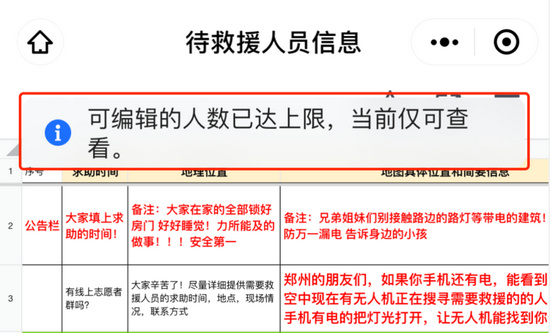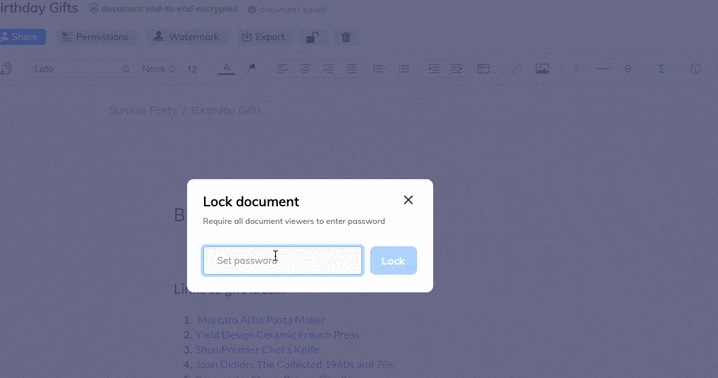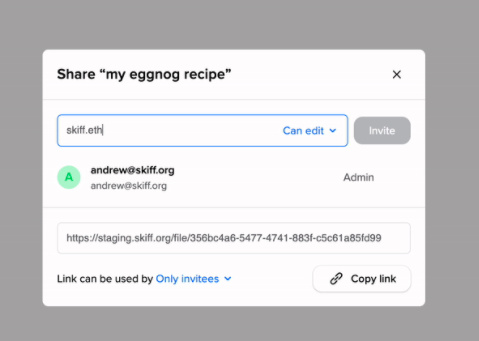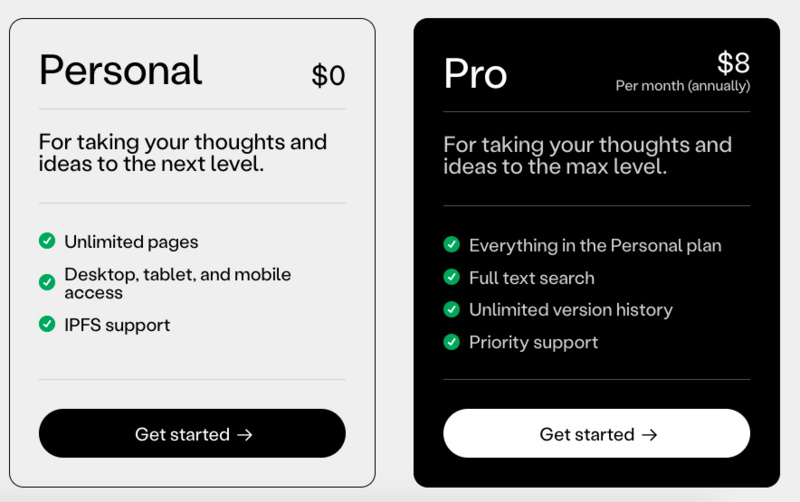Can "Skiff," which has been led by Sequoia in two rounds, become a unicorn in decentralized collaborative applications?
Author: Shiwen, Planet Daily
Last year, a rescue document regarding the heavy rain in Zhengzhou attracted attention. This document recorded information about people in need of rescue, available support materials, and safe evacuation locations. It received over 2.5 million visits and was updated hundreds of times. From the initial line of text to a rescue tool with an independent homepage and 9 functional sheets, it took only 21 hours. This served as an excellent medium for communication in disaster areas where dissemination channels were obstructed, saving many lives.
The "collaborative" role of Tencent Docs was crucial in mobilizing national resources across organizations and regions to complete the editing of rescue information in such a short time.
Collaborative office tools are not a new concept, but this rescue operation made everyone reevaluate their importance. Because they support efficient collaboration and sharing among multiple people and devices, cross-organizational and cross-regional document editing became possible.
However, this incident also exposed existing issues in current multi-person collaboration. For example, too many visitors and limited data storage capacity led to an inability to edit online simultaneously.

Additionally, to facilitate more people in filling out the document, the permission settings were "anyone can view and edit," which also meant that there was a risk of information being viewed or even tampered with indiscriminately. For instance, when there was too much information being edited at the time, responsible netizens would remind others in large letters: "Don't mess with the document!!!!"

The document's creator, Manto, stated in an interview, "I hope that after the flood situation ends, the private information in the document can be erased or covered."
So how can collaborative tools be effective while also focusing on data security and privacy protection? Perhaps decentralized collaborative tools can provide the answer.
Prioritizing Privacy from the Start
Skiff is a decentralized collaborative office tool that offers document writing and sharing features similar to Google Docs. Skiff uses E2EE (end-to-end encryption technology) as a core design principle for online work, applied to messaging, writing, collaboration, and communication. Skiff servers only store encrypted versions of data, which cannot be decrypted.
Each time a user logs into Skiff, the browser generates a key that is used to decrypt the account data sent from Skiff's server to the user's device after successful login, and this occurs locally. The derived keys are never sent over any network or stored on Skiff's servers.
The specific process is as follows: when A edits a document, they encrypt it using a symmetric encryption key shared only between them and B (this key is not shared with Skiff). After receiving A's encrypted edit, B verifies and decrypts it, then merges it into the document. Throughout this process, data is not disclosed to any central technology provider, facilitating the verification and protection of personal and sensitive information.
Moreover, Skiff has designed limited access permissions. When there are shared collaborators, you can restrict further access by setting expiration controls.
If there are sensitive contents in the document that are inconvenient to disclose, they can be protected by setting a password lock. This way, even if someone publicly shares the link, the information creator can restrict access to the content.

In terms of data storage, Skiff announced integration with IPFS. On IPFS, data is replicated and distributed across a network of participating computers, which work together to ensure the integrity and permanence of all data stored on the network. Therefore, using IPFS allows for permanent access to user data without relying on a central provider.
Web3 Login Method
As Web3 continues to permeate the internet, MetaMask has become a new form of identity login. In December 2021, Skiff began supporting MetaMask wallet login, allowing users to access end-to-end encrypted documents and data on Skiff using their existing key pairs (Ethereum addresses).
Following that, in January of this year, Skiff also enabled the use of Ethereum Name Service (ENS) names to simplify usernames on Skiff.

On March 31, Skiff announced the completion of a $10.5 million Series A financing round, led by Sequoia Capital. Notably, Sequoia Capital had previously participated in leading Skiff's $4.2 million seed round in May last year, alongside a group of angel investors with deep expertise in privacy and decentralization: former Mozilla CEO John Lilly, former Coinbase CTO Balaji Srinivasan, TCG crypto investor Gaby Goldberg, and Albert Ni from Dropbox and the Ethereum Foundation.
Currently, Skiff is in the early stages and supports browser, iOS, and Android versions. It is divided into personal and team versions based on usage scenarios and functions, with each version offering both free and paid options, differentiated by features and storage capacity.

Additionally, Skiff has partnered with Coinbase Commerce to allow users to pay Skiff fees using cryptocurrency.
The use cases for collaborative documents are increasing, especially during the pandemic when remote work became mainstream. This format has simplified the online work process for people, becoming a common need for businesses and individuals. It is believed that Skiff, combined with blockchain technology, can capture more users with its advantages while making decentralized collaborative tools a new market hotspot.











